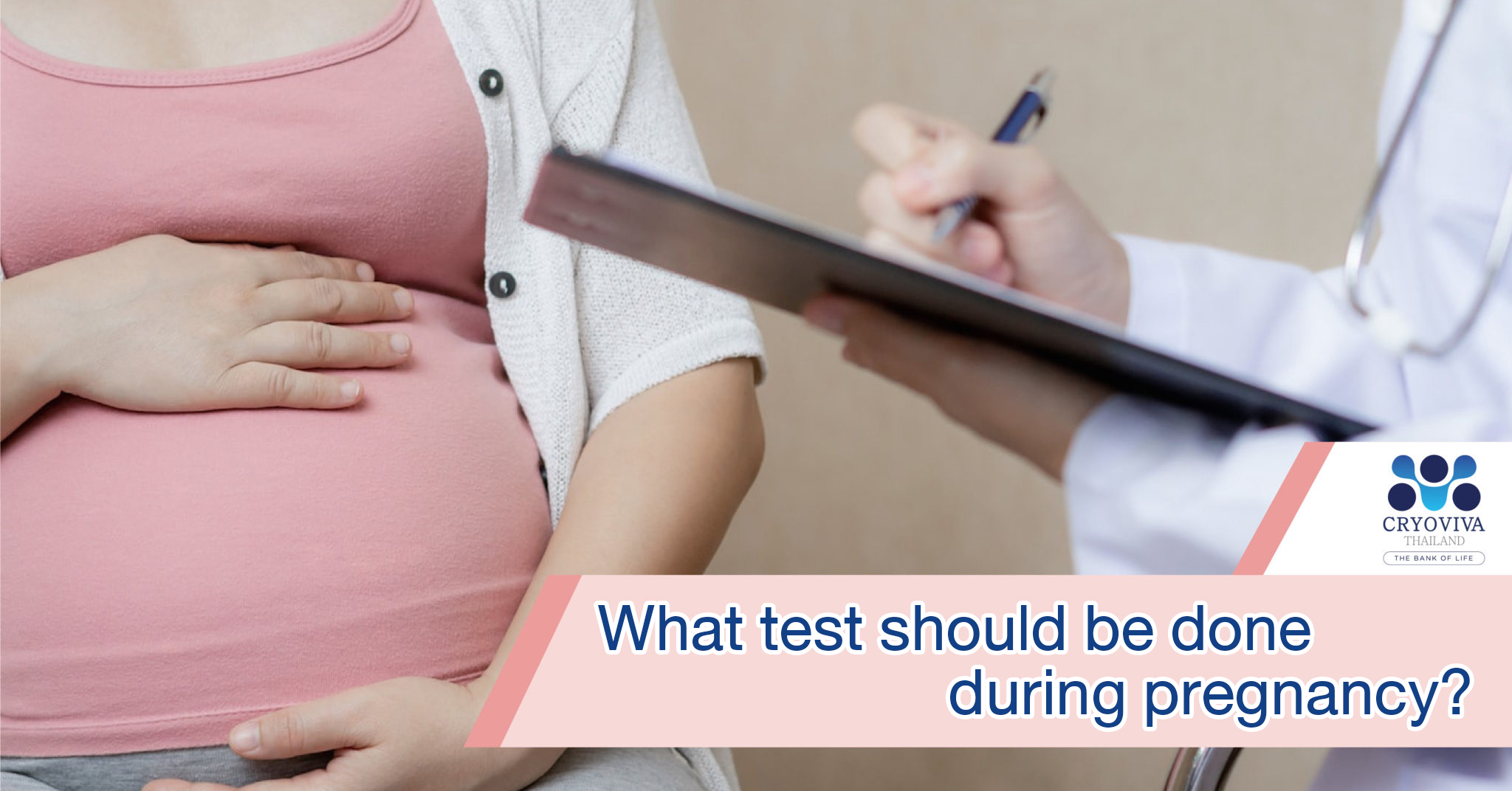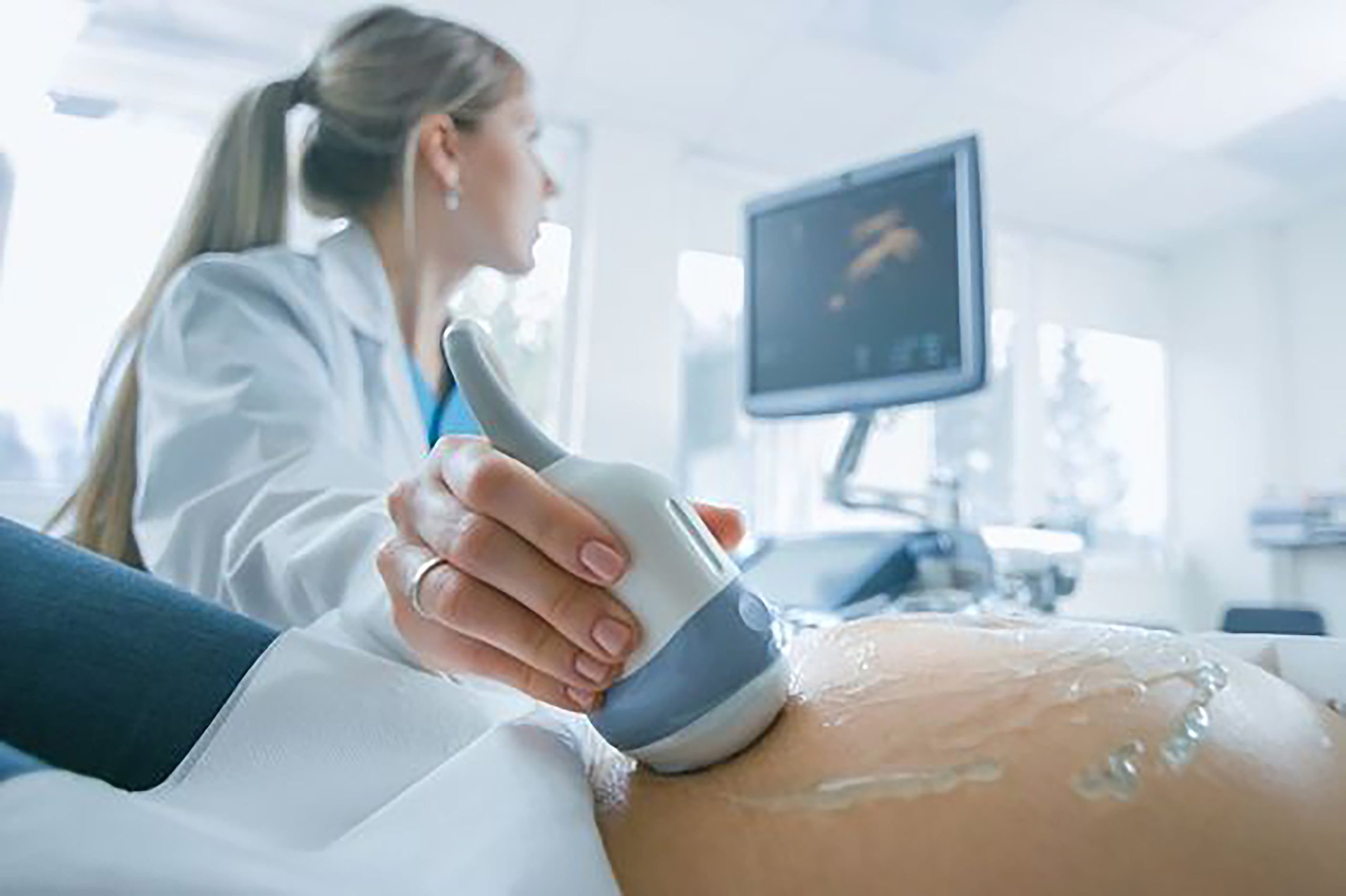What Tests Should Be Done during Pregnancy?
Any pregnancy requires extra care, which is similar to when one has an illness. Pregnant mothers should make an appointment with an obstetrician periodically to ensure positive progress and development of the baby.
Tests can be done according to the stage of pregnancy:
First trimester (from the moment that you know you are pregnant until week 14)
- Blood tests must be done during the prenatal care. The objective is to screen the fetus, AIDS, STDs, Hepatitis B-C, Rubella (German measles), Thalassemia, and any genetic abnormalities in the baby, and to evaluate risks of chemical pregnancy that may lead to Down syndrome in the baby.
Thalassemia has currently been detected in many parents. Obstetrician will evaluate the harmfulness of the condition to the baby. If it is not harmful to the baby, parents should primarily consider stem cell collection for the benefits of the baby. It has been proven that stem cells can treat various blood diseases such as Thalassemia. Severe Thalassemia can as well be alleviated by a curative innovation such as stem cell transplantation.
- Cervical cancer screening is very important for pregnant mothers. If the cancer is found during the pregnancy, radio and chemotherapy will become harmful to the baby.
- Ultrasound scan helps estimate the gestational age and the number of the baby. It can also diagnose ectopic pregnancy, a complication that the embryo grows outside of the uterus.
Second trimester (week 15 – 28)
- Blood tests for diabetes are recommended for pregnant mothers especially if they are 35 years old or above, overweight or have high blood sugar levels in blood and urine.
- Non-Invasive Fetal Trisomy (NIFTY) test should also be conducted to assess the risks of chromosome abnormalities in fetus such as Down syndrome. It also helps identify the sex chromosomes of the baby.
- Having ultrasound scans done in this trimester will allow parents to know the baby’s gender and keep track of his/her growth. The screening will reveal the baby’s entire body. At the same time, it will measure the cervical length to predict a possibility of premature birth and check the placenta’s position to prevent a condition such as placenta previa.
Third trimester (week 29 – 42)
- Second blood tests for AIDS, STDs, Hepatitis B and the blood volume are suggested.
- Group B Strep (GBS) test which is a screening of Streptococcus agalactiae bacteria in vagina and bladder should also be considered. These bacteria can be transmitted to the baby and can cause uterus and urinary tract infection and complications during delivery.
- Another ultrasound scan to evaluate the placenta’s position, baby’s movement, and suitable type of delivery is to be conducted.
- Fetal heart rate monitoring test will help identify the baby’s health and reveal the position of the baby.
Additional tests that should be considered are as follows:
- Preeclampsia screening may be necessary. Annually, there are about 10% – 15% of pregnant women or 76,000 cases around the world suffer from preeclampsia condition, which lead to fatality in approximately 500,000 infants per year.
Preeclampsia may occur in the following cases:
- Pregnant mothers under 20 years old or above 35 years old
- First-time pregnant mothers
- Overweight mothers
- Mothers with twin pregnancies
- Mothers with and a history of preeclampsia or cardiovascular disease in family
- Pregnancy by assisted fertility technologies
- Mothers carrying blood clotting condition or medical history such as hypertension, kidney disease, diabetes, Systemic Lupus Erythematosus (SLE), or rheumatoid arthritis (RA)
In case that the obstetrician knows of preeclampsia condition in mothers, he/she will continually monitor the symptoms and plan for an effective treatment. Read more about Preeclampsia screening test
In short, medical check-up during pregnancy is crucial for pregnant mothers to detect any unexpected problems, to evaluate proper treatments as well as to make plans for the baby’s health ahead of time. A cord blood collection is a good option for the baby’s future. The collected stem cells can treat different blood diseases such as Thalassemia- an inherited blood disorder, and Leukemia.
Stem cells have been studied and proven that they can treat various diseases e.g. degenerative disease, dementia, Alzheimer’s and Parkinson’s disease, rheumatoid arthritis (RA), heart and cardiovascular disease, spinal injury, and diabetes. Therefore, collecting stem cells prior to the delivery is a wise choice for the parents to prevent unforeseen problems that may occur to the baby in the future.
For more details and benefits of stem cell opportunity, please see here
Sources: อมรินทร์ เบบี้&คิดส์, The Asian Parent, Hi Family club, เว็บไซต์รพ.กรุงเทพ, เว็บไซต์ รพ.เพชรเวช, เว็บไซต์ Thai Helath, เว็บไซต์คณะแพทยศาสตร์ศิริราชพยาบาล, เว็บไซต์โรงพยาบาลบำรุงราษฎร์ (ศูนย์สูตินรีเวช), เว็บไซต์รพ.วิชัยยุทธ
“CRYOVIVA,” the leader in global standard stem cell innovation.
live for the quality of life for everyone in the family.
Contact us and get special promotion now!





